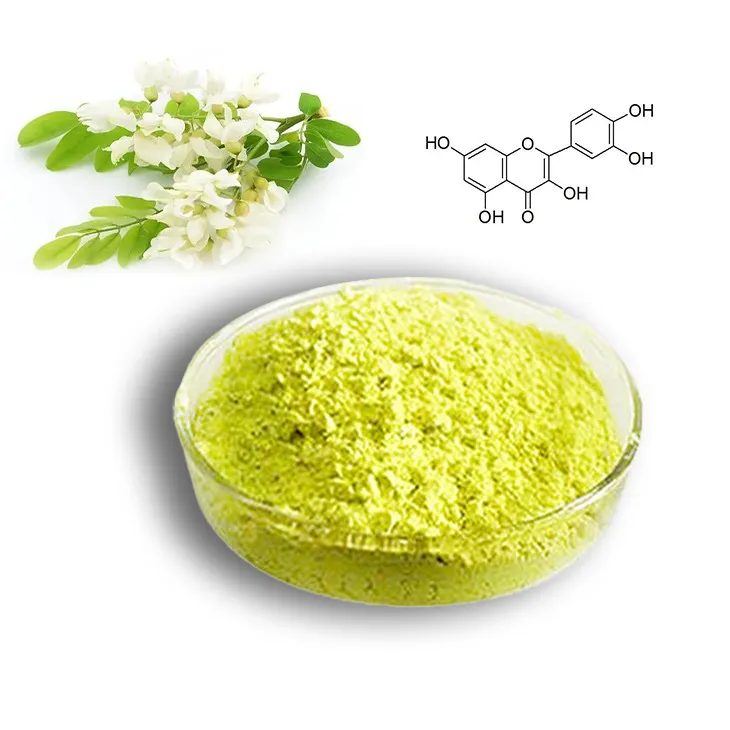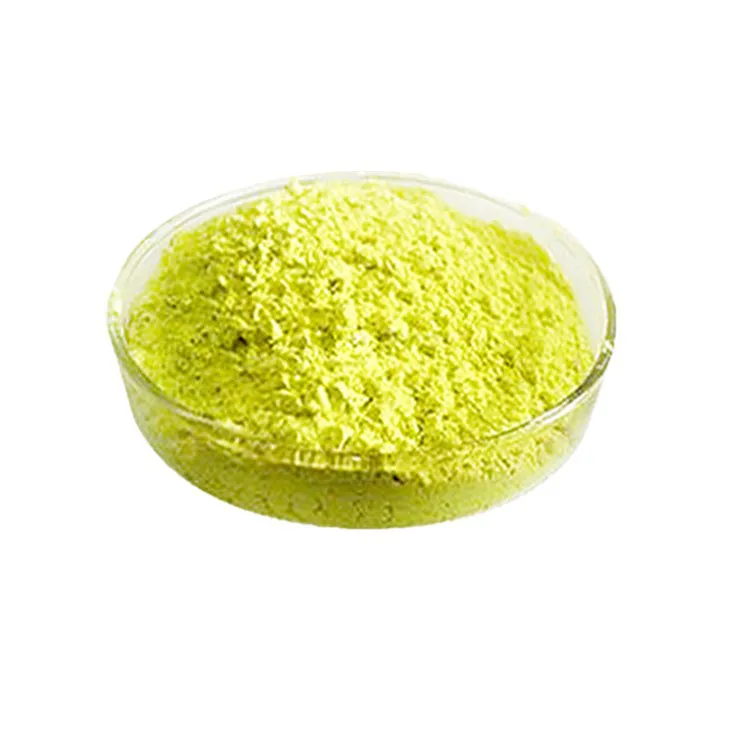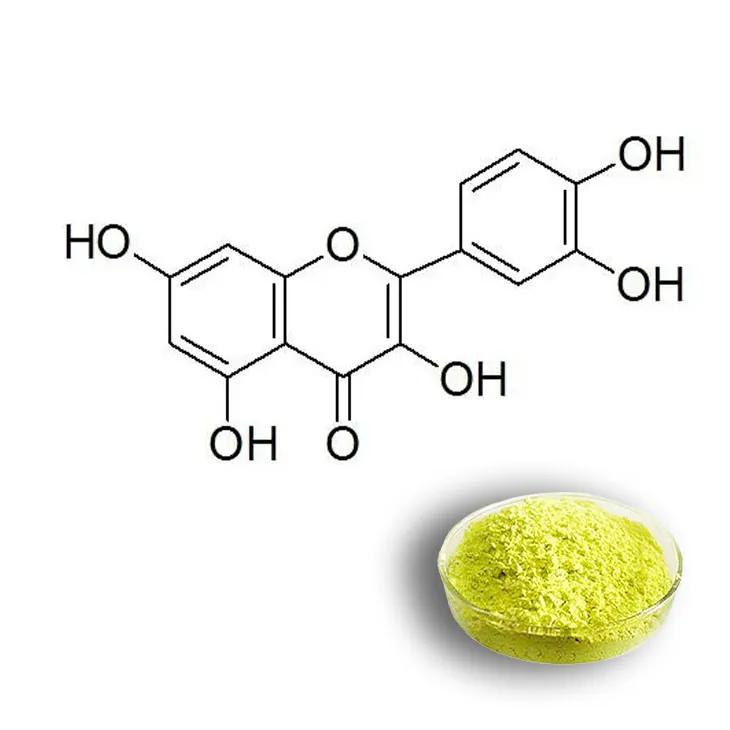- 0086-571-85302990
- sales@greenskybio.com
10 Amazing Health Benefits of Quercetin.
2024-11-12

1. Introduction to Quercetin
Quercetin is a flavonoid that is widely distributed in nature. It can be found in numerous plants, such as apples, onions, berries, and green tea. This natural compound has been the focus of much scientific research due to its potential impact on human health. Its antioxidant and anti - inflammatory properties are two of the most notable characteristics that contribute to its various health benefits.

2. Heart Health Benefits
2.1. Improving Blood Vessel Function
One of the significant ways Quercetin benefits heart health is by enhancing blood vessel function. The endothelium, which is the inner lining of blood vessels, plays a crucial role in maintaining vascular health. Quercetin helps in relaxing the blood vessels, which in turn improves blood flow. This is important as it can reduce the risk of developing conditions such as hypertension (high blood pressure). When blood vessels are constricted, the heart has to work harder to pump blood throughout the body, which can lead to various cardiovascular problems over time. By promoting vasodilation (the widening of blood vessels), quercetin helps to ease the workload on the heart.
2.2. Lowering Cholesterol Levels
Quercetin also has an impact on cholesterol levels. It can help in reducing the levels of low - density lipoprotein (LDL) cholesterol, often referred to as "bad" cholesterol. High levels of LDL cholesterol can lead to the formation of plaques in the arteries, which narrows the arteries and restricts blood flow. By reducing LDL cholesterol, quercetin contributes to a healthier cardiovascular system. Additionally, it may also have a positive effect on high - density lipoprotein (HDL) cholesterol, known as "good" cholesterol, although more research is needed to fully understand this relationship.

3. Immune System Modulation
The immune system is our body's defense mechanism against various pathogens, such as bacteria, viruses, and fungi. Quercetin has the ability to modulate the immune system, which means it can help in regulating the immune response. In times of infection, it can enhance the activity of immune cells, such as macrophages and natural killer cells, which are responsible for detecting and destroying foreign invaders. On the other hand, it can also prevent the immune system from overreacting, which is often the case in autoimmune diseases where the immune system mistakenly attacks the body's own cells. By maintaining a balanced immune response, quercetin provides protection against a wide range of infections and diseases.

4. Skin Health Benefits
4.1. Protection Against UV - Induced Damage
Our skin is constantly exposed to ultraviolet (UV) radiation from the sun, which can cause significant damage. This includes sunburn, premature aging (wrinkles, fine lines), and an increased risk of skin cancer. Quercetin offers protection against UV - induced damage. It acts as a natural sunscreen by absorbing UV rays and neutralizing the free radicals that are generated as a result of UV exposure. Free radicals are highly reactive molecules that can damage cells, including skin cells. By reducing the number of free radicals, quercetin helps to keep the skin healthy and youthful - looking.
4.2. Anti - Inflammatory Effects on the Skin
In addition to its UV - protecting properties, quercetin also has anti - inflammatory effects on the skin. Skin conditions such as acne, eczema, and psoriasis are often associated with inflammation. Quercetin can reduce this inflammation by inhibiting the production of inflammatory mediators in the skin. This can lead to a reduction in redness, swelling, and itching associated with these skin conditions, promoting overall skin health.

5. Allergy Symptom Alleviation
Allergies occur when the immune system overreacts to harmless substances, such as pollen, dust mites, or certain foods. During an allergic reaction, the body releases histamine, which causes symptoms such as sneezing, itching, watery eyes, and a runny nose. Quercetin has been shown to have anti - histamine properties. It can block the release of histamine from mast cells, which are the cells responsible for triggering allergic reactions. By doing so, it can help in alleviating allergy symptoms, making it a natural alternative to over - the - counter anti - histamine medications for some people.
6. Cognitive Function Improvement
6.1. Neuroprotective Properties
The brain is a complex organ that is vulnerable to damage from various factors, such as oxidative stress, inflammation, and neurodegenerative diseases. Quercetin has neuroprotective properties, which means it can protect the brain cells from damage. It does this by reducing oxidative stress in the brain. Oxidative stress occurs when there is an imbalance between the production of free radicals and the body's ability to neutralize them. By scavenging free radicals in the brain, quercetin helps to maintain the health of brain cells, which is essential for proper cognitive function.
6.2. Enhancing Memory and Learning
Studies have also suggested that quercetin may have a positive impact on memory and learning. It may do this by improving the communication between brain cells, known as synaptic plasticity. Synaptic plasticity is crucial for the formation and storage of memories. By enhancing synaptic plasticity, quercetin could potentially improve memory and learning abilities, which is especially important as we age and are at risk of cognitive decline.
7. Anti - Cancer Potential
While more research is needed in this area, quercetin has shown some potential in the fight against cancer. It may act at different stages of cancer development. For example, it can inhibit the growth and proliferation of cancer cells. This is achieved through various mechanisms, such as interfering with the cell cycle of cancer cells, preventing them from dividing uncontrollably. Additionally, quercetin may also have an effect on angiogenesis, which is the process by which tumors develop their own blood supply. By inhibiting angiogenesis, quercetin can starve tumors of the nutrients and oxygen they need to grow. However, it is important to note that quercetin should not be considered a sole treatment for cancer, but rather a complementary approach that may work in conjunction with traditional cancer therapies.
8. Anti - Diabetic Effects
Quercetin may also play a role in managing diabetes. In diabetes, there is a problem with blood sugar regulation. Quercetin can help in improving insulin sensitivity. Insulin is a hormone that is responsible for regulating blood sugar levels. When cells become resistant to insulin, blood sugar levels rise. By enhancing insulin sensitivity, quercetin allows cells to respond better to insulin, which helps in lowering blood sugar levels. It may also have an effect on other aspects of diabetes management, such as reducing oxidative stress in pancreatic beta cells, which are the cells responsible for producing insulin.
9. Anti - Aging Benefits
The aging process is associated with an increase in oxidative stress and inflammation in the body. As mentioned earlier, quercetin has strong antioxidant and anti - inflammatory properties. These properties make it a potential anti - aging agent. By reducing oxidative stress, it can slow down the damage to cells and tissues that occurs over time. This can have a wide range of effects, from reducing the appearance of wrinkles and age spots on the skin to improving the function of internal organs as we age. Additionally, by reducing inflammation, quercetin may also help in preventing age - related diseases, such as arthritis, heart disease, and neurodegenerative disorders.
10. Eye Health Benefits
The eyes are also susceptible to damage from oxidative stress and inflammation. Quercetin can protect the eyes in several ways. It can help in preventing age - related macular degeneration (AMD), which is a leading cause of vision loss in older adults. AMD is often associated with oxidative damage to the macula, the part of the eye responsible for central vision. Quercetin's antioxidant properties can help in neutralizing the free radicals that cause this damage. Additionally, it may also have a role in reducing the risk of cataracts, another common eye condition. Cataracts occur when the lens of the eye becomes cloudy, which can impair vision. By reducing inflammation in the eye, quercetin may help in preventing the development of cataracts.
11. Conclusion
Quercetin is a remarkable flavonoid with a wide range of health benefits. From heart health to skin health, from immune system modulation to cognitive function improvement, its potential impact on human health is vast. While more research is still needed to fully understand all of its mechanisms of action and potential applications, the existing evidence suggests that incorporating quercetin - rich foods into our diet or considering quercetin supplements (under the guidance of a healthcare professional) could be a beneficial step towards maintaining good health. However, it is important to note that quercetin should not be seen as a substitute for medical treatment in cases of serious illness, but rather as a complementary approach to support overall health.
FAQ:
What is quercetin?
Quercetin is a flavonoid that can be found in many plants. It is known for its strong antioxidant and anti - inflammatory properties.
How can quercetin reduce the risk of heart diseases?
Quercetin can reduce the risk of heart diseases by improving blood vessel function.
What role does quercetin play in the immune system?
Quercetin has the potential to modulate the immune system, which means it can help protect against infections.
How does quercetin help with skin health?
Quercetin may help maintain healthy skin by protecting against UV - induced damage.
Can quercetin relieve allergy symptoms?
Yes, quercetin can help in alleviating allergy symptoms.
Related literature
- Quercetin: A Promising Molecule for Health Benefits"
- "The Role of Quercetin in Antioxidant Defense and Immune Modulation"
- "Quercetin and Skin Health: A Review of the Evidence"
- ▶ Hesperidin
- ▶ citrus bioflavonoids
- ▶ plant extract
- ▶ lycopene
- ▶ Diosmin
- ▶ Grape seed extract
- ▶ Sea buckthorn Juice Powder
- ▶ Beetroot powder
- ▶ Hops Extract
- ▶ Artichoke Extract
- ▶ Reishi mushroom extract
- ▶ Astaxanthin
- ▶ Green Tea Extract
- ▶ Curcumin Extract
- ▶ Horse Chestnut Extract
- ▶ Other Problems
- ▶ Boswellia Serrata Extract
- ▶ Resveratrol Extract
- ▶ Marigold Extract
- ▶ Grape Leaf Extract
- ▶ blog3
-
Cranberry Plants and Skin - care Products.
2024-11-12
-
Astaxanthin
2024-11-12
-
Epimedium extract powder
2024-11-12
-
Scutellaria Extract
2024-11-12
-
Angelica sinensis extract
2024-11-12
-
Nutmeg Extract
2024-11-12
-
Mulberry Extract
2024-11-12
-
Troxerutin
2024-11-12
-
Almond Extract Powder
2024-11-12
-
Rose Hip Extract
2024-11-12
-
Mango flavored powder
2024-11-12





















